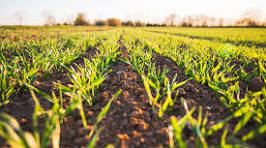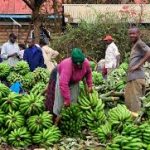In the tapestry of human civilization, agriculture stands as the foundational thread, weaving together the fabric of society, sustenance, and progress. From the dawn of civilization to the present day, agriculture has been instrumental in shaping our societies, economies, and cultures. Its significance transcends mere sustenance; it forms the bedrock upon which entire civilizations flourish. In the contemporary era, as we grapple with issues such as food security, environmental sustainability, and economic development, the importance of agriculture has never been more pronounced.
Feeding the World
Agriculture is the cornerstone of global food production, providing sustenance for billions of people worldwide. The ability to cultivate crops and raise livestock has enabled societies to transcend the limitations of hunting and gathering, ensuring a stable and consistent food supply. Today, as the global population burgeons, agriculture shoulders the responsibility of feeding an ever-growing populace. The challenge of ensuring food security for all remains paramount, driving innovation and advancement in agricultural practices.
Economic Prosperity
Beyond its role in providing food, agriculture is a key driver of economic growth and prosperity. It serves as the backbone of rural economies, supporting livelihoods and fostering community development. The agricultural sector encompasses a wide array of activities, from farming and agribusiness to food processing and distribution. In both developed and developing nations, agriculture plays a pivotal role in generating income, employment, and foreign exchange earnings. Moreover, the interconnectedness of agriculture with other sectors of the economy underscores its significance in driving overall economic development.
Environmental Stewardship
Agriculture is inextricably linked to the environment, relying on natural resources such as soil, water, and biodiversity. As stewards of the land, farmers have a profound impact on ecosystems and biodiversity. Sustainable agricultural practices are essential for preserving natural resources, mitigating climate change, and safeguarding the planet for future generations. Embracing agroecological approaches, promoting conservation agriculture, and enhancing resource efficiency are critical steps towards achieving environmental sustainability within the agricultural sector.
Cultural Heritage
Throughout history, agriculture has been intertwined with cultural identity, traditions, and customs. From ancient agrarian societies to modern agricultural communities, farming practices have shaped cultural landscapes and fostered a sense of belonging. Agriculture is not merely a means of production; it embodies a way of life, encompassing rituals, festivities, and culinary traditions passed down through generations. Preserving agricultural heritage is essential for safeguarding cultural diversity and promoting intergenerational knowledge transfer.
Innovation and Adaptation
In an era of rapid technological advancement and environmental change, agriculture must continuously innovate and adapt to meet evolving challenges. From precision farming and biotechnology to climate-smart agriculture and digitalization, technological innovations hold the key to enhancing productivity, resilience, and sustainability within the agricultural sector. Furthermore, fostering agricultural research and education is essential for equipping farmers with the knowledge and skills needed to navigate complex agricultural landscapes.
Conclusion
In essence, agriculture is more than just the cultivation of crops or the raising of livestock; it is a multifaceted endeavor that sustains life, drives economies, shapes landscapes, and preserves cultural heritage. As we confront pressing global challenges such as food insecurity, climate change, and biodiversity loss, the importance of agriculture cannot be overstated. Embracing sustainable agricultural practices, promoting innovation and resilience, and fostering inclusive agricultural policies are essential steps towards building a more food-secure, equitable, and sustainable future for all. In the tapestry of human civilization, agriculture remains the enduring thread that binds us to the land and to each other.





